TMJ & TMD Jaw Pain Relief in Sydney | Nomad Chiropractic
tmj
TMJ symptoms, causes and treatment on Sydney’s North Shore
Understanding TMJ & TMD
The temporomandibular joint (TMJ) connects your jawbone to your skull, facilitating essential movements like speaking and chewing. Temporomandibular disorders (TMD) encompass various conditions affecting this joint.
-
Jaw pain or tenderness
Clicking or popping sounds when opening or closing the mouth
Difficulty chewing or discomfort while chewing
Locking of the jaw joint
Headaches or earaches
Facial pain
-
Jaw injury,
Orthdontics & Dental work
Arthritis,
Genetics, or
Habits such as teeth grinding.
Stress and anxiety
Parasites
How Chiropractic Care Can Help
At Nomad Chiropractic, we offer non-invasive, drug-free treatments to alleviate TMJ-related discomfort. Our approach focuses on addressing the root causes of TMD through:
1. Adjustments: To the spine, Cranium, and Jaw (where indicated)
Misalignments in the spine and jaw can contribute to TMJ dysfunction. By performing gentle chiropractic adjustments, we aim to restore proper alignment, reducing strain on the TMJ and associated muscles.
2. Myofascial Release Therapy
Tension in the muscles surrounding the TMJ can exacerbate pain. Our myofascial release techniques target these tight muscles, promoting relaxation and improved jaw mobility.
3. Cranial Work
Cranial chiropractic techniques involve gentle manipulation of the skull bones to alleviate tension and improve function in the craniosacral system. This approach can be particularly beneficial for TMJ disorders, as it addresses restrictions and misalignments in the cranial structures that may contribute to jaw pain.
4. Postural Education
Poor posture can influence TMJ health. We educate our patients on maintaining proper posture to minimize undue stress on the jaw joint.
5. Addressing Underlying Causes
Rather than merely alleviating symptoms, our chiropractic care aims to identify and treat the underlying causes of TMJ disorders. This comprehensive approach ensures more effective and lasting relief by considering factors such as spinal alignment, muscle tension, and habitual behaviors.
Managing Stress and Anxiety
Stress and anxiety are significant contributors to TMJ disorders. They can lead to increased muscle tension, teeth grinding, and clenching, all of which exacerbate TMJ symptoms. Chiropractic care can help manage stress by:
Reducing Sympathetic Dominance: Chiropractic adjustments can shift the body from a state of chronic stress (sympathetic dominance) to one of relaxation and healing (parasympathetic activation).
Decreasing Muscle Tension: By alleviating tension in the neck, shoulders, and jaw, chiropractic care can reduce the physical manifestations of stress.
Improving Sleep Quality: Proper spinal alignment can enhance sleep quality, which is often disrupted by stress and anxiety.
In addition to chiropractic care, incorporating relaxation techniques such as deep breathing, meditation, and mindfulness can further help in managing stress and reducing TMJ symptoms.
The Impact of Sleep Posture, Pillows, and Beds on TMJ
Your sleep environment and posture play a crucial role in TMJ health:
Sleep Position: Sleeping on your back with proper neck support helps keep the jaw aligned and reduces strain on the TMJ. Conversely, sleeping on your stomach or with your hand under your jaw can worsen TMJ pain by misaligning the jaw and putting excess pressure on the joint.
Pillow Choice: Using a supportive pillow that maintains proper neck alignment can help alleviate TMJ discomfort. A cervical memory foam pillow is often recommended for TMJ sufferers.
Mattress Support: A mattress that provides adequate support to maintain spinal alignment can also contribute to TMJ relief.
The Role of Tongue Posture and Eye Gaze in TMJ Health
Proper tongue posture and eye gaze are often overlooked factors in TMJ health:
Tongue Posture: The position of the tongue at rest can influence jaw alignment and tension within the facial muscles. Improper tongue posture may lead to TMJ-related issues.
Eye Gaze: The muscles controlling eye movement are interconnected with those involved in jaw function. Poor eye gaze habits, such as prolonged downward gazing at screens, can contribute to forward head posture and subsequent TMJ dysfunction.
Addressing these factors through exercises and awareness can support overall TMJ health.
Bruxism and Its Impact on TMJ
Bruxism, the habitual grinding or clenching of teeth, often occurs unconsciously during sleep or periods of stress. This condition can lead to:
Excessive pressure on the TMJ
Muscle fatigue and pain
Worn or damaged teeth
Headaches and facial discomfort
Chiropractic care can help manage bruxism by addressing the musculoskeletal imbalances contributing to the condition and by implementing stress-reduction techniques.
Co-Management with Holistic Myofascial-Focused Dentists
Effective management of TMJ disorders often requires a collaborative approach. At Nomad Chiropractic, we work closely with holistic dentists who specialize in myofascial therapies. These practitioners focus on the muscles and connective tissues of the face and jaw, providing treatments such as:
Myofunctional Therapy: Exercises that improve tongue posture and function, which can influence jaw alignment.
Dental Appliances: Custom-fitted devices that alleviate pressure on the TMJ and prevent teeth grinding.
This integrated care model ensures that all aspects of TMJ disorders are addressed, leading to more comprehensive and lasting relief.
Home Exercises for TMJ Relief
In addition to in-clinic treatments, incorporating specific exercises at home can aid in managing TMJ symptoms:
Relaxation Techniques: Practicing stress-reduction methods like deep breathing or meditation can alleviate muscle tension.
Jaw Stretching Exercises: Gentle stretching can improve jaw mobility and reduce discomfort.
Postural Exercises: Strengthening neck and shoulder muscles supports proper jaw alignment.
It's essential to perform these exercises correctly; our chiropractors can guide you through proper techniques during your visits.
Why Choose Nomad Chiropractic?
Expertise in TMJ Disorders: Our chiropractors have extensive experience in diagnosing and treating TMD.
Holistic Approach: We consider the interconnectedness of the body's systems to provide comprehensive care.
Collaborative Care: We work alongside holistic dentists to ensure all aspects of TMJ disorders are addressed.
Patient-Centered Care: Your comfort and health goals guide our treatment plans.
Schedule Your Consultation Today
If you're experiencing jaw pain or other TMJ-related symptoms, don't wait for relief. Contact Nomad Chiropractic to schedule a consultation and take the first step toward improved jaw health.

